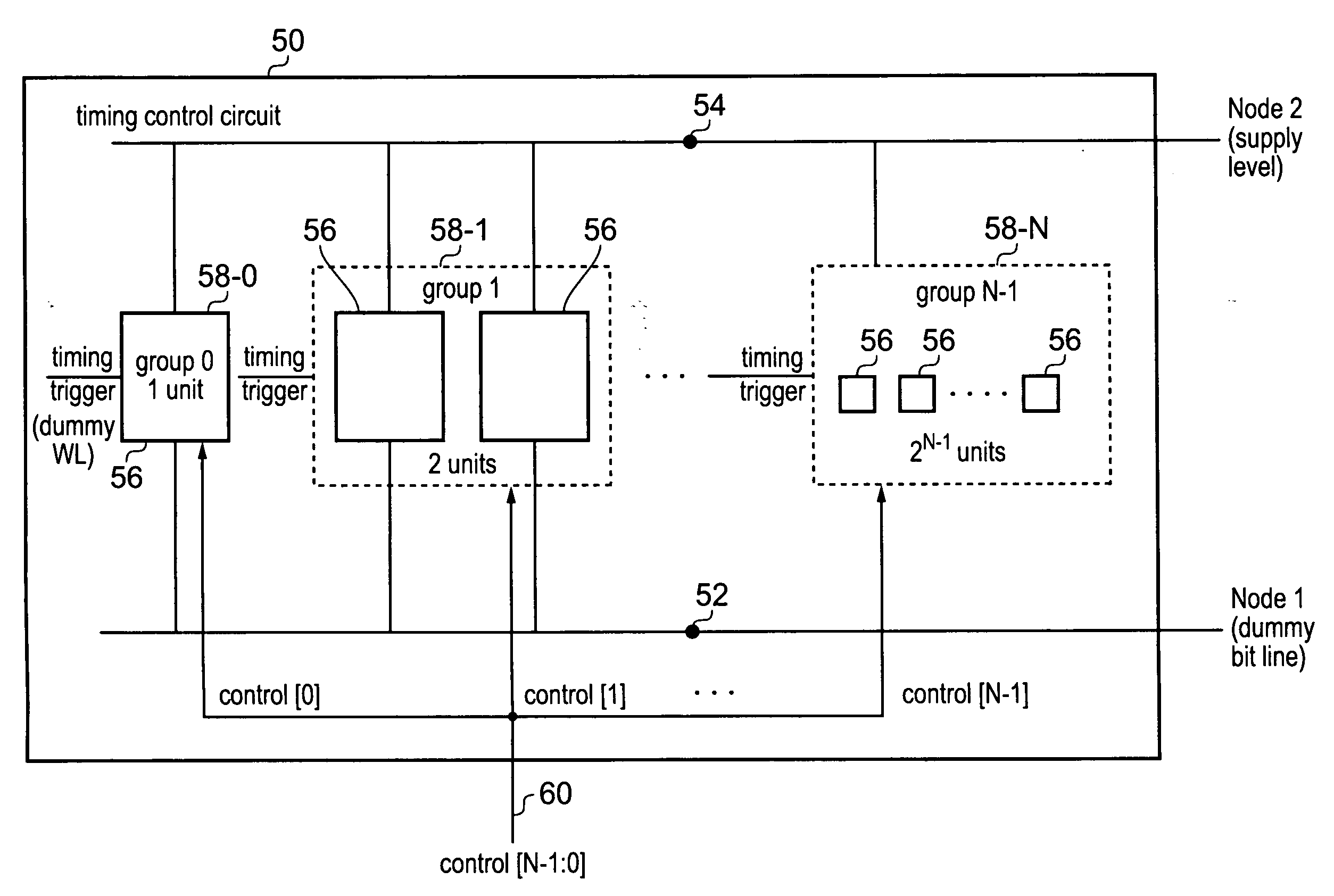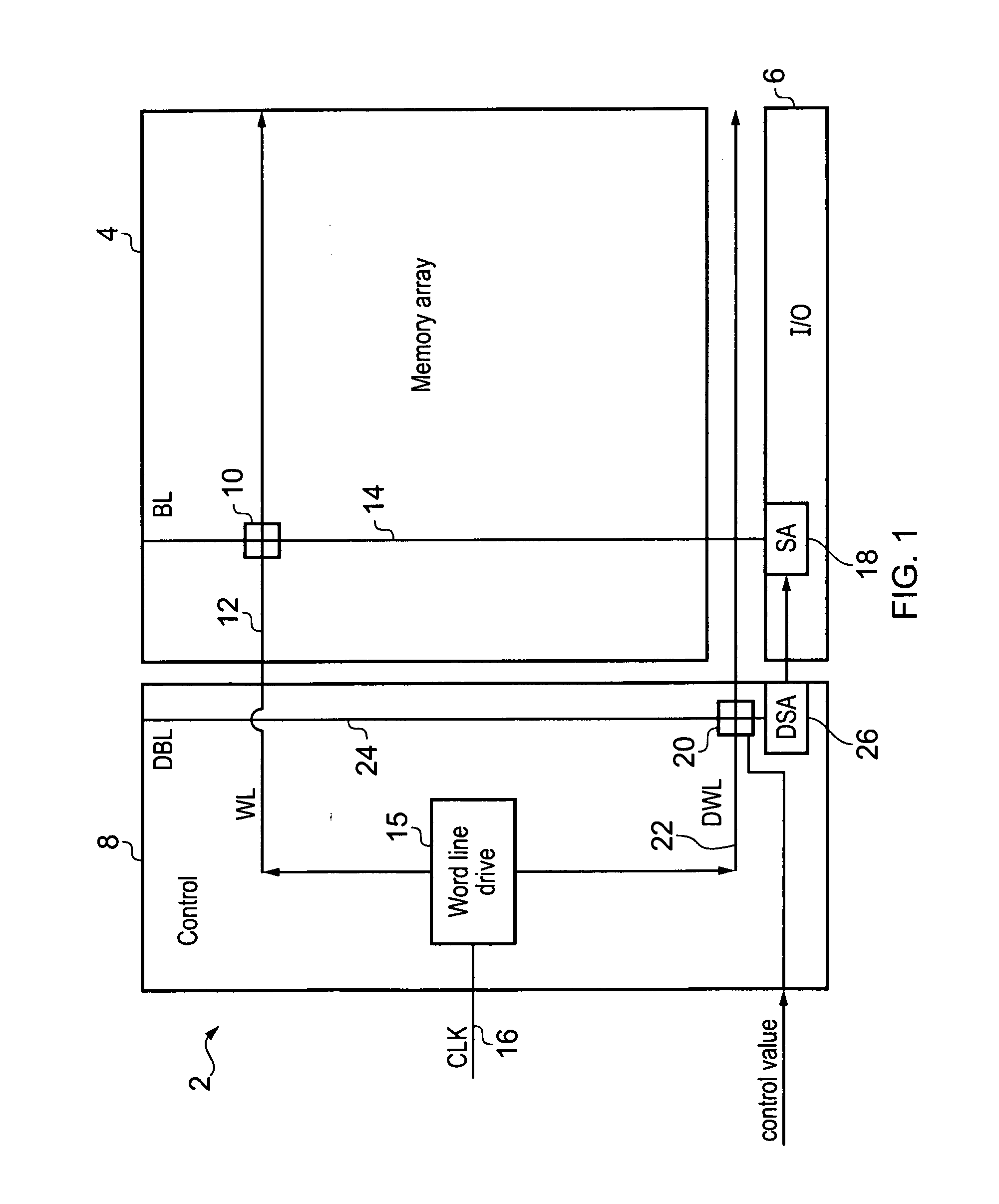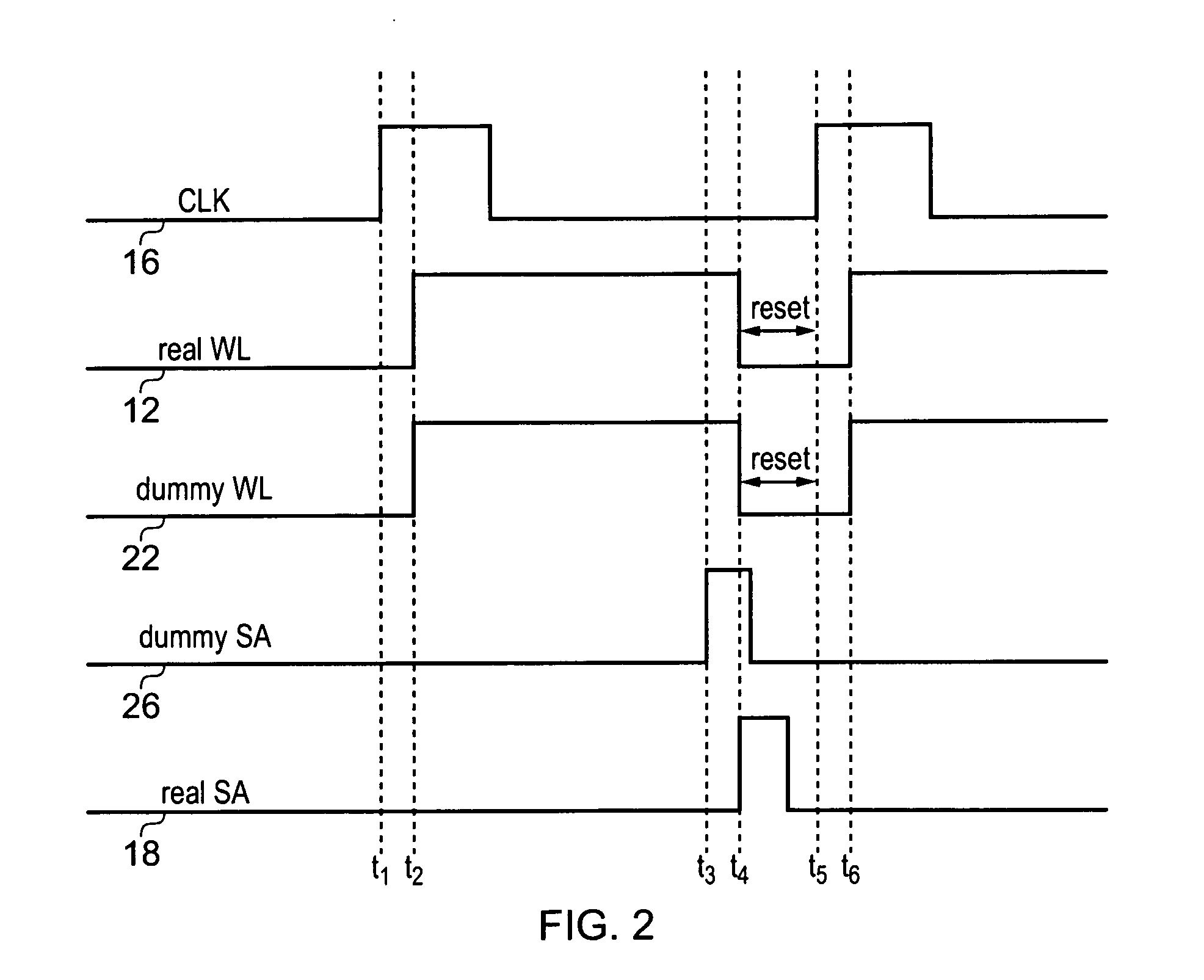Timing control circuit
- Summary
- Abstract
- Description
- Claims
- Application Information
AI Technical Summary
Benefits of technology
Problems solved by technology
Method used
Image
Examples
Embodiment Construction
[0088]FIG. 1 schematically illustrates a memory 2 comprising a memory array 4, an input / output (I / O) unit 6 and a control unit 8. The memory array 4 comprises an array of memory cells 10 for storing data values. Each memory cell 10 has a corresponding word line 12 and bit line 14 which are used to select the desired memory cell 10 during a read operation or write operation. During a read or write operation, the word line 12 for the desired memory cell 10 is driven by a word line drive unit 15 within the control unit 8 in response to a clock signal 16. For a read operation, the data value in the memory cell 10 is read from the bit line 14 by a sense amplifier 18 within the input / output unit 6. For a write operation, a data value is asserted on the bit line 14 and stored to the memory cell 10.
[0089]Reference timings for controlling memory operations within the memory array 4 are controlled by a dummy loop circuit. The dummy loop circuit comprises a dummy cell 20, dummy word line 22, d...
PUM
 Login to View More
Login to View More Abstract
Description
Claims
Application Information
 Login to View More
Login to View More - R&D
- Intellectual Property
- Life Sciences
- Materials
- Tech Scout
- Unparalleled Data Quality
- Higher Quality Content
- 60% Fewer Hallucinations
Browse by: Latest US Patents, China's latest patents, Technical Efficacy Thesaurus, Application Domain, Technology Topic, Popular Technical Reports.
© 2025 PatSnap. All rights reserved.Legal|Privacy policy|Modern Slavery Act Transparency Statement|Sitemap|About US| Contact US: help@patsnap.com



